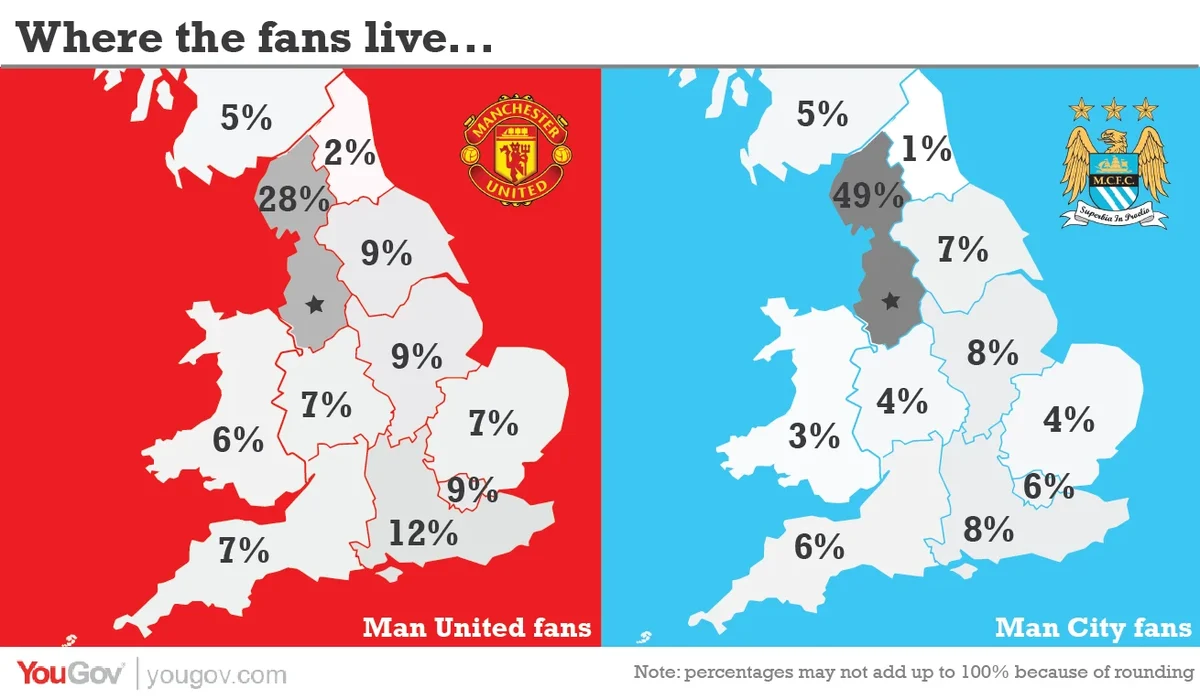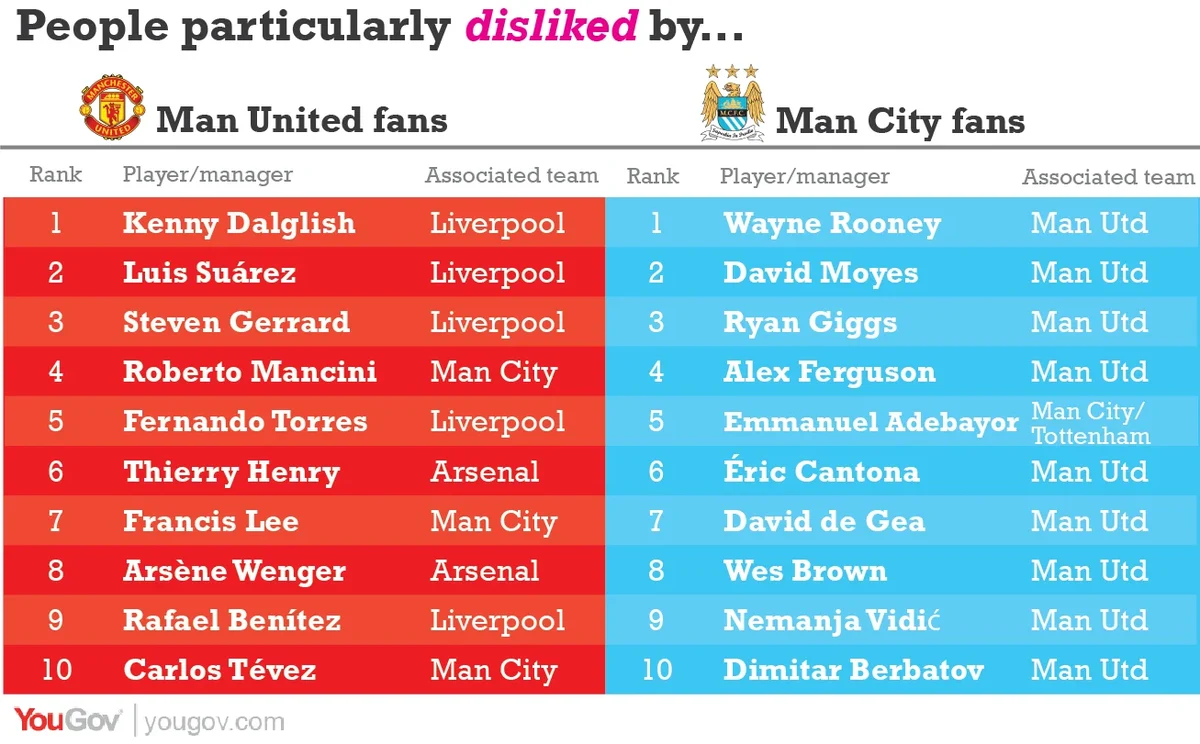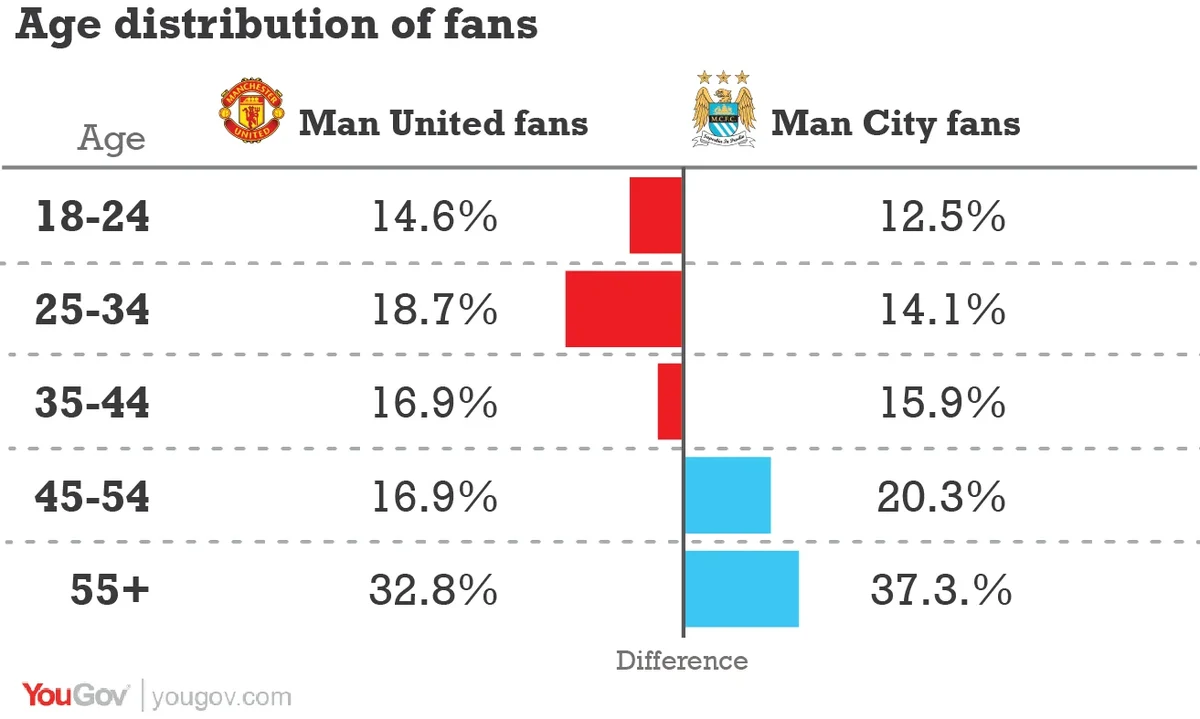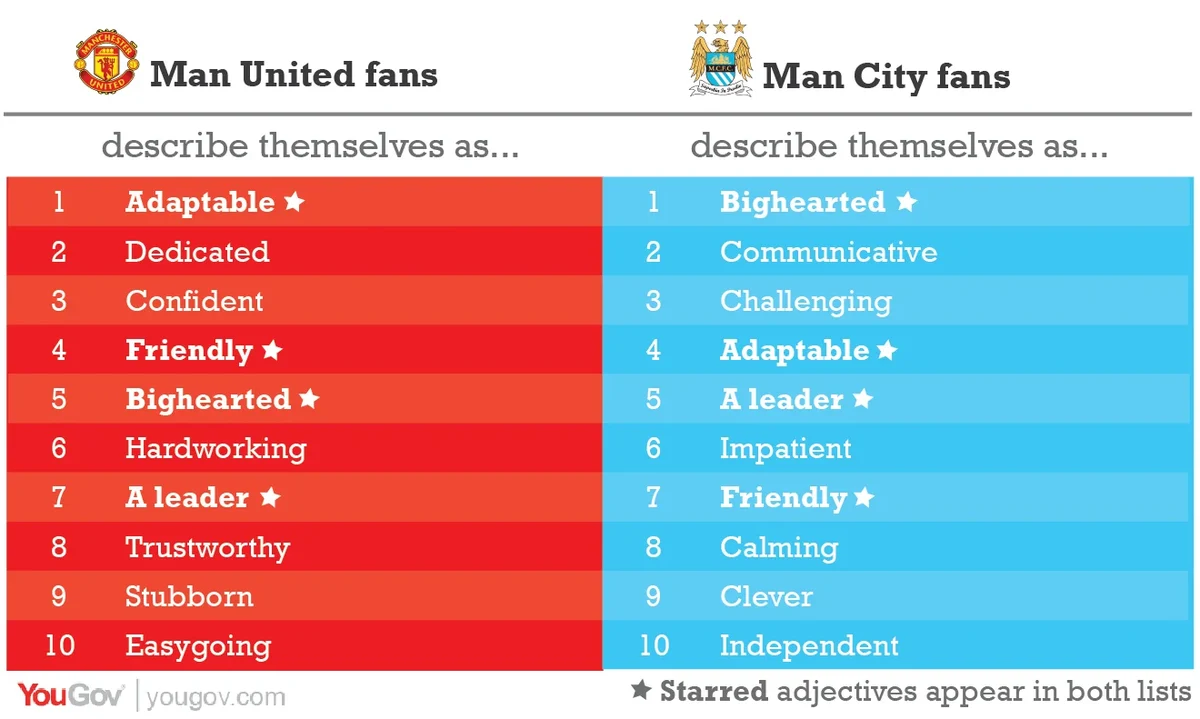An analysis of 8,551 Manchester United and Manchester City fans reveals some surprising differences – and similarities
It’s one of the most famous rivalries in the Premier League. Man United and Man City divide the city of Manchester, and their derby clashes (next scheduled for this coming Tuesday) are some of the most anticipated matches of the season.
Their stadium chants are full of insults to the other side. Man City fans view themselves as the only true local team of Manchester (“there’s no red in Manchester”) while United fans chant about Man City’s inferior record and smaller support (“the city is yours, the city is yours, 20000 empty seats, are you f***ing sure?”).
But what is the truth about these two fanbases? How different or similar are they? We ran an analysis of 8,551 Man U and Man City fans in the YouGov Cube, our database of connected data about hundreds of thousands of YouGov members, to discover in hard facts what the differences and similarities were.
We discovered FOUR key things, that may challenge traditional assumptions.
1. Man U is not a local club… but nor is Man City
It is certainly true that Man City fans are more concentrated in the areas around Manchester than Man United fans. Only 28% of British Man United fans live in the North West region, while 49% of Man City fans do.
But it is noticeable that both teams’ support bases are now mostly outside the North West. It is a timely reminder that Man City, while basing its identity on being the ‘real’ local team, is also now a major nationwide brand with foreign ownership.

2. Man City fans hate United more than United fans hate Man City
Every member of the YouGov panel can contribute their personal ratings on the YouGov website of their favourite (and least favourite) celebrities, companies, movies and so on.
Looking at the footballers and managers that these two groups disproportionately dislike says it all. Nine out of ten of Man City fans’ pet hates are connected to Man U; only three of the Manchester United top ten pet hates are connected to Man City. Their greater enmities are towards Liverpool and Arsenal.

3. Man City needs to recruit younger fans
Football fans tend to pick a team when they are young and stick to it. The dominance of Manchester United over the past twenty years, during which time it has grown into a vast international superbrand, has swollen its fan numbers in the younger age range of 18-34. In comparison, Man City’s fanbase is somewhat underweight at this end of the age spectrum, with a higher percentage of older people instead.
The new proprietors of Man City will be hoping that its performance of the past few years can be sustained and that younger fans will join the club, and stay. This is its only route to challenge Man U in terms of brand power. It’s going to be a long game.

4. Deep down, they’ve got a lot in common
Despite all this, it's worth remembering that there is more that unites Man U fans and Man City fans than divides them. This is confirmed by the personality profiles of the two groups.
All our members at YouGov are asked to describe themselves from a list of over 200 personality traits – including at least three positive and three negative. This means that we can look for statistical differences between large groups and find out if certain types of people end up liking, or buying, certain types of things.
We ran the analysis comparing both groups to football fans in general, and the results were heart-warmingly similar. Of the personality traits that were most true of each group, four appeared in both top ten lists.

This degree of personality overlap between two groups doesn’t happen often, and suggests that, underneath the hood, there is a good deal of common ground. When the two sets of fans meet at the Derby on March 25th, we can’t expect them to lay off the chants or fierce rivalry, but at least now they'll have some facts to go on.








